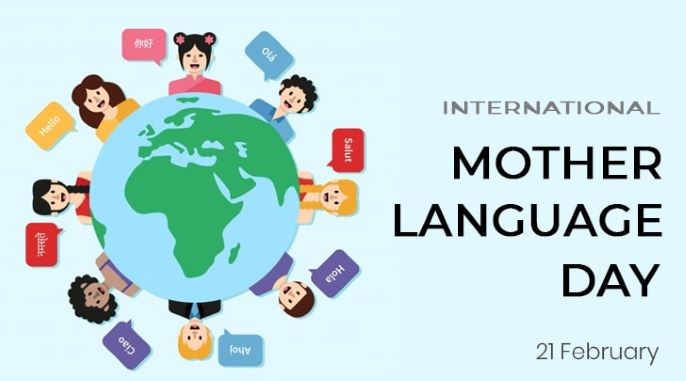Colombo February 21: The International Mother Language Day, meant to highlight the role of the mother tongue in shaping people’s lives across the globe, was celebrated in Colombo with tuneful songs and enchanting dances performed by school children and youth from several countries.
The celebrations, organized jointly by the Bangladesh High Commission and the Sri Lankan Ministry of Education, placed the accent on the younger generation as it is the young who will stand to gain the most by the Mother Language Movement. The program, held in the airy pavilion at the Independence Square, began with students of the Indian Cultural Centre perfectly rendering “Ami Banglay Gaan Gai” a patriotic Bengali song written by Pratul Mukhopadhyay and originally sung by Mahmuduzzaman Babu. The song had been elected as the sixth greatest Bengali song of all time by theBBC Bengali Service. “Ami Bangla Gaan Gai” was followed by Rabindranath Tagore’s “Ebar Tor More Gange”.
Next came the Sinhala language song “Obath Mamath” sung by Jagath Wickramasinghe, a Sri Lankan engineer-turned musician. His masterly performance was followed by the evocative and tuneful semi-classical Tamil song “Tamizhukku Amudhendru Peyr” sung by Thenuka Karunakaran.
Students of the Maldivian Cultural Center in Colombo then gave a demonstration of the five different dialects of their national language Dhivehi. On to Europe, three Sri Lankan students of the Russian Cultural Center performed a vigorous Russian folk dance to the delight of the audience. The Russian poet Sergei Yesenin’s “Birch Tree” was recited to give an idea of the sound of the language and also life in rural Russia. Divya Serasinghe from the French Cultural Center sang a French song.
Welcoming the guests, who included Sri Lankan Prime Minister Mahinda Rajapaksa, Education Minister Dinesh Gunawardena, Trade Minister Bandula Gunawardena and State Minister for Regional Cooperation Tharaka Balasuriya, Bangladesh High Commissioner Tareq Md. Ariful Islam explained the reasons for placing the accent on the youth in the celebrations. Education of the young in their mother tongue is crucial for learning and the development of their personalities, he said. Besides, the development and use of various mother tongues help promote both diversity and mutual tolerance, necessary for the creation of a better world. The stress on the mother tongue in education helps prevent the extinction of languages in a situation where one language is dying every two weeks. A policy of education through the mother tongue will also ensure that all will attend school. As of now, 40% of the world’s population have no access to education, partly because education is not available in their mother tongue.
The Minister of Education Dinesh Gunawardena pointed out that Sri Lanka has been giving education in all three languages of the country, Sinhala, Tamil and English. Prime Minister Mahinda Rajapaksa always uses Sinhala but at the same time would speak a few words in Tamil showing his inclusive approach. The Minister further said that Sri Lanka hopes to be a truly tri-lingual country in the future.
Simran Singh of the ILO, who spoke on behalf of the UN System in Sri Lanka, said that the next decade from 2022 has been declared a Decade of Indigenous languages. She urged educationists to use modern technology for the teaching of languages. But this has to be done carefully she warned. These technological tools could standardize languages to the detriment of variations, which are important in themselves, she explained.
At the end of the function, prizes were awarded to school children who were winners of creative writing and art competitions on the theme Mother, Mother Language, Mother Land.
END





